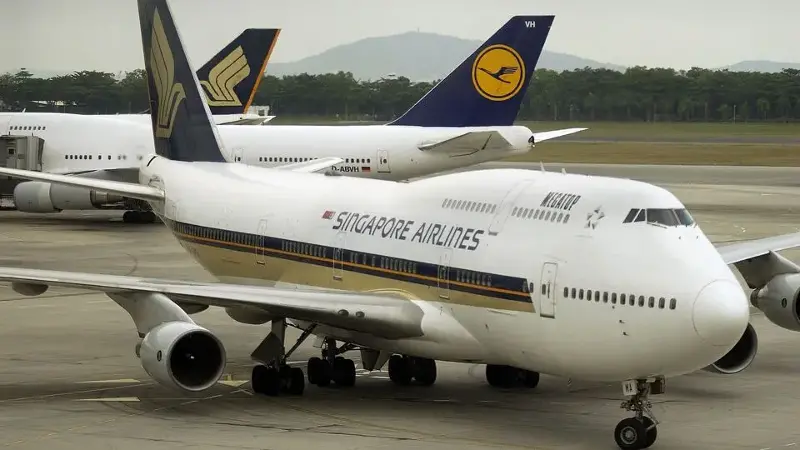
Losses at Air India have caused the profit of its largest shareholder, Singapore Airlines, to plunge in the six months ended September.
Singapore’s flagship carrier’s net profit dropped 67.8% year-on-year to S$239 million for the April-September period, according to its statement. It attributed the decline to accounting losses primarily from its associate company Air India, where Singapore Airlines owns a 25.1% equity.
“...while the Group’s share of results of associated companies was S$ 417 million lower year-on-year, notably reflecting Air India’s losses which were not included in the previous year net profit,” it said in a statement.
Lower interest income owing to lower cash balances and interest rate cuts also weighed on profits.
Singapore Airlines’s second-quarter net profit fell 82.1% over a year earlier to S$52 million. This was largely due to the “share of results of associated companies” (S$295 million) and a lower interest income (down S$42 million).
It is unclear whether the entire loss of associated companies is linked to Air India.
SIA’s investment in Air India
Air India Group, the country’s second-largest airline with a 27% market, is privately held entity and submits its results annually to the Ministry of Corporate Affairs. It does not disclose quarterly numbers.
Previously, Tata Sons and Singapore Airlines jointly owned Vistara (here in India) in a 51:49 ratio. Post acquisition of Air India in January 2022, and subsequent merger of Vistara in November 2024, Singapore Airlines saw its equity stake reworked at 25.1%, with Tata Sons Pvt Ltd holding the remaining 74.9%.
Singapore Airlines, with its equity stake, has one board seat a Air India, a position currently held by its chief executive officer Goh Choon Phong.
The airline has also invested over ₹6,300 crore in the merged carrier's recapitalisation plan.
For the fiscal ended 31 March 2025, the Tata-owned Air India's revenue rose 15% to ₹78,636 crore, but its net loss widened to ₹10,859 crore. The consolidated entity includes Air India, Vistara, Air India Express, and AIX Connect, and its financials as a single merged group were reported for the first time. Under CEO Campbell Wilson, a five-year turnaround plan is underway.
Long-term strategy
The airline faced “unprecedented shocks” this year, Wilson had said, citing the June 12 crash that killed 12 crew members and 229 passengers aboard, and the closure of Pakistani and Middle Eastern airspace, which together delivered “a heavy financial and operational blow.” He estimated the Pakistan airspace closure, which began in May after Operation Sindoor, would cost around ₹4,000 crore if it continued for the full year.
Despite the setback to earnings, Singapore Airlines has reiterated that its investment in Air India is part of a long-term strategy to strengthen its position in Asia’s fast-growing aviation market.
“The SIA Group remains committed to working with Tata Sons to support Air India’s comprehensive multi-year transformation programme,” the airline said.
Singapore Airlines described its 25.1% stake in Air India as a key element of its “multi-hub strategy”, designed to give it a foothold in one of the world’s largest and fastest-growing aviation markets while complementing its home base in Singapore. The partnership, Singapore Airlines said, will also help unlock new traffic flows between South Asia and key global routes.
Gagan Dixit, analyst at Elara Capital, said the accounting hit from Air India’s losses was expected. “Air India continues to wait for more fuel and cost-efficient Boeing aircraft, which is one of key reasons why their fleet renewals have slowed down. This has impacted the bottom line. And on top of that, there was a tough September quarter in India, plus unprecedented shocks like airspace closure.”
